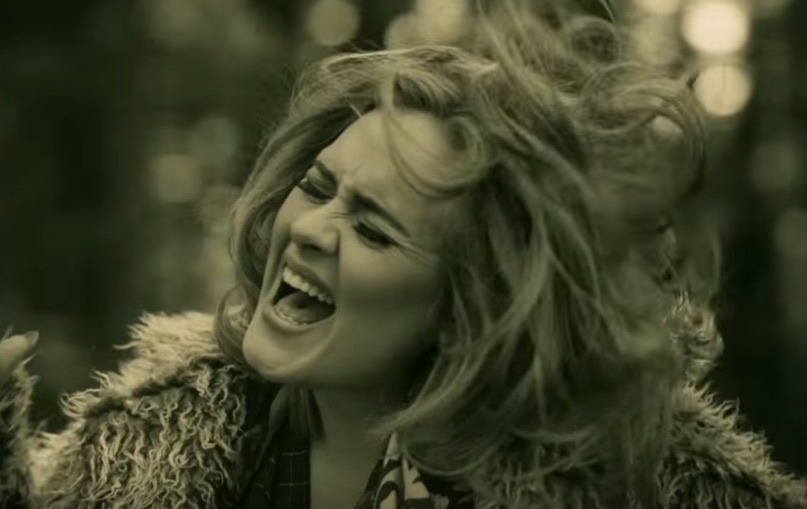In the last few years, female artists have taken an incredibly strong stance on feminism, creating art that focuses on the tense dialogue surrounding gender, race, and identity. Whether this requires a change from their old style or leans into their existing art depends on the artist: For someone like Nicki Minaj, being in control has always been her persona, while Taylor Swift has only more recently increased her focus on being a feminist icon—creating pop songs and videos that empower as much as they delight. So when Adele—who swept the Grammys in 2012 and has been absent since—came back with a video “about nothing,” there was a risk that some of her old fans would be left feeling underwhelmed.
Adele’s video for “Hello”—her first single in over three years—has collected over 450 million views on YouTube in less than four weeks. It has absolutely shattered records. In the sales department, the single itself has been just as successful: The song was the first since the 1990s to sell over one million copies in its first week, while also racking up nearly 80 million plays on Spotify since its release. Adele’s return has no doubt been triumphant, and the anticipation for her upcoming album, 25, is now at a feverous pitch.
What’s interesting about Adele’s incredible success is how personal the work itself is. The lyrics to “Hello,” according to Adele in an interview with Rolling Stone, are a message to her former self, phoning in from adulthood. The video is deeply introspective as well—a sepia-toned documentary of what looks like a romantic fallout, with several lingering shots of Adele meandering through a forest, belting out the chorus, and looking pensive.
Several close-up shots last longer than one would expect, allowing her face to be examined and her emotions easily accessed. She allows herself to be vulnerable. Parallel to her side of the story, is her ‘lover,’—Tristan Wilds—captured in various states of emotion through a handheld camera-style of filming. We see him excited and happy, but also embarrassed. We see him intense, feverish, and brooding. And then, during his departure; angry, hurt, and betrayed. Both Wilds and Adele’s characters are invariably human and relatable. But how, then, does this relate to the wider discussion of gender politics?
By not relating at all.
Too much of identity has become exclusive—creating narratives that pertain to a singular identity rather than a collective. Race, sexual orientation, and gender have gradually become terms of separation, and force people into carefully created slots. There are, of course, an infinite number of slots to chose from, but to join one ultimately requires distance from another. Labels have divided society throughout history, and they will continue to divide until they are refuted.
When questioned about feminism, Adele responded very simply: “I’m a feminist [….] I believe that everyone should be treated the same, including race and sexuality.” Her art mirrors that.
Though Adele’s last album focused heavily on heartbreak—themes that certain people would incorrectly attribute to a ‘feminine sensitivity’—her heartbreak was as much female as it was male, as much white as it was black. “Hello” continues the trend. Everyone can grasp the exhausting feeling of speaking to past lovers, old friends, or former selves. It is an art beyond the labels that separate people.
This is the genius of “Hello.” Though Adele’s fan base certainly propelled the initial numbers, those 450 million views spawned from the universal nature of her art. It is the inclusive tale she spins—the natural tones showcasing a beautiful woman feeling her music—that drew people in. “Hello” is a song that doesn’t have to make a statement, because it exists as one. It doesn’t need a squad of slender supermodels dressed as soldiers, or incredibly toned women celebrating their sexuality. Adele, in her loose-fitting clothes, captivates us with just her voice.
“Hello” is a pop song, and Adele is, as David Attenborough states, a “pop predator” on the hunt. But in the increasingly political climate of pop, Adele’s song and video shine. The numbers speak for themselves, and Adele’s belief in equality is natural—it is her music that shows this: She doesn’t have to declare it. “Hello,” with its amazing success, will stand as a testament to that.








